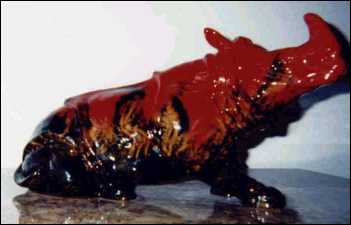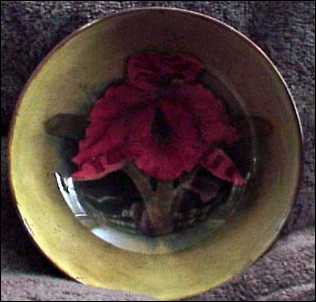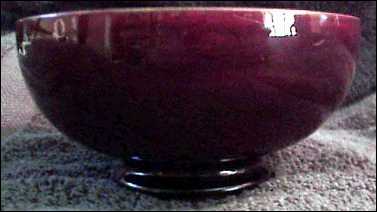|
Flambé Glaze
-
A distinctive glaze which Royal Doulton make use of, it consists of
a rich, deep-red glaze slashed with streaks of purple and turquoise used
to decorate pottery, particularly porcelain.
-
The effect results from a particular method of firing
a glaze that incorporates copper; the method was first discovered by the Chinese
of the Ming dynasty, probably during the reign of Wan-li (1573-1620).
-
Examples of this old flambé work are now extremely
rare. The process was at first difficult to control, but by the reign of Ch'ien-lung
(1736-96) in the Ch'ing dynasty it had been mastered, and ch'ui hung, or blown
red glaze ware, as flambé work was called, became very popular. The porcelain
factory at Sèvres (France) produced a substantial amount of flambé work in the
late 19th century.
-
The process was revived in modern times by individual
potters, notably Bernard Moore in
England, who worked at the beginning of the 20th century.

Doulton flambe fox

This Royal Doulton Flambe' Rhinoceros is a rare example
The marbling effect on this
piece is exquisite.
It measures approx. 9 1/2" tall and approx. 13 1/2" long.
Designer Leslie Harradine.
The Rhino is one of the four very fine 'Rouge Flambe' models,
introduced in 1970.
The Rhinoceros is a worthy successor to Noke's Elephant


A unique style of bowl from Moorcroft.
This bowl has a Crimson
Orchid inside with colours
of green surrounding it.
The outside of the bowl has the flambe
glazing covering a deep, rich cobalt blue.
This footed bowl stands 2" tall and has a diameter of 4 3/16"
|
![]()
![]()